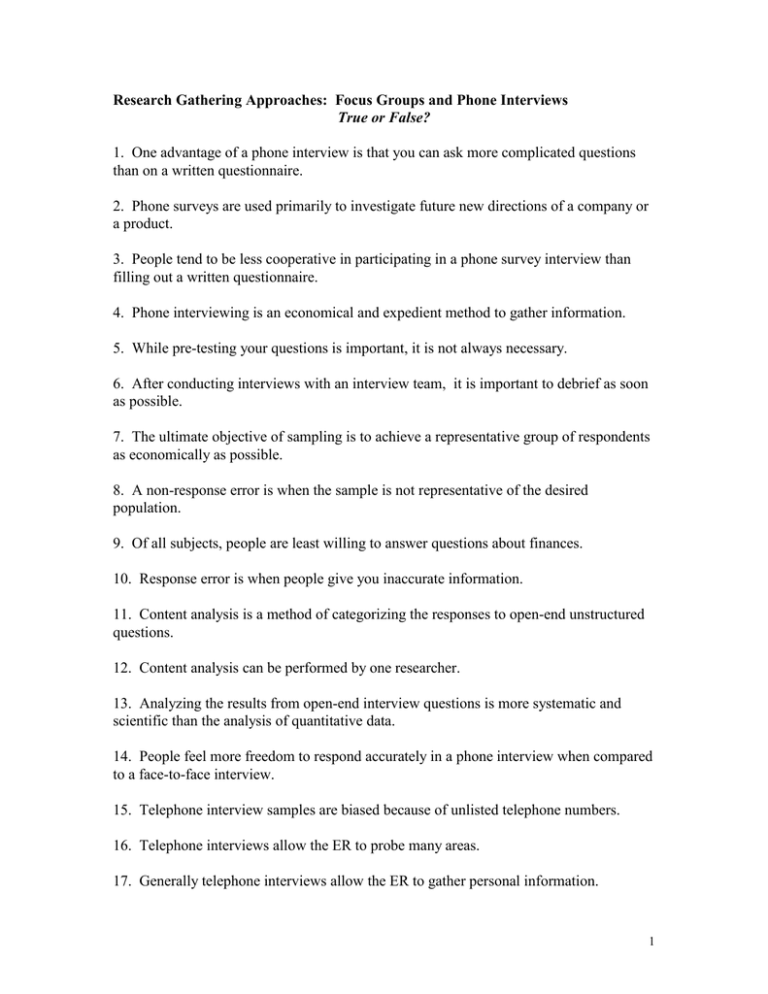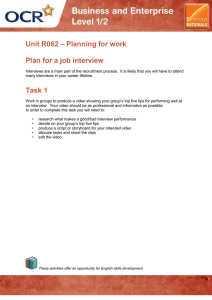Research Gathering (Quiz)
advertisement

Research Gathering Approaches: Focus Groups and Phone Interviews True or False? 1. One advantage of a phone interview is that you can ask more complicated questions than on a written questionnaire. 2. Phone surveys are used primarily to investigate future new directions of a company or a product. 3. People tend to be less cooperative in participating in a phone survey interview than filling out a written questionnaire. 4. Phone interviewing is an economical and expedient method to gather information. 5. While pre-testing your questions is important, it is not always necessary. 6. After conducting interviews with an interview team, it is important to debrief as soon as possible. 7. The ultimate objective of sampling is to achieve a representative group of respondents as economically as possible. 8. A non-response error is when the sample is not representative of the desired population. 9. Of all subjects, people are least willing to answer questions about finances. 10. Response error is when people give you inaccurate information. 11. Content analysis is a method of categorizing the responses to open-end unstructured questions. 12. Content analysis can be performed by one researcher. 13. Analyzing the results from open-end interview questions is more systematic and scientific than the analysis of quantitative data. 14. People feel more freedom to respond accurately in a phone interview when compared to a face-to-face interview. 15. Telephone interview samples are biased because of unlisted telephone numbers. 16. Telephone interviews allow the ER to probe many areas. 17. Generally telephone interviews allow the ER to gather personal information. 1 18. Nearly 80% of the refusals for telephone interviews occur between the introductory comments and the first question. 19. A focus group seeks to probe opinions in order to gather quantitative data about specific products. 20. The moderator of the focus group should try to limit the size to 5-7 people. 21. The primary purpose of the moderator of a focus group is to determine the reactions people have to a product, idea or position. 22. Sometimes an effective focus group leader should make extreme statements to serve as a catalyst for new ideas. 23. Probing skills are of paramount importance in the focus group. 24. Nondirective probing is more important in telephone interviews than in focus group interviews. 25. Information from phone interviews is generally more reliable and valid than from focus groups. 2


